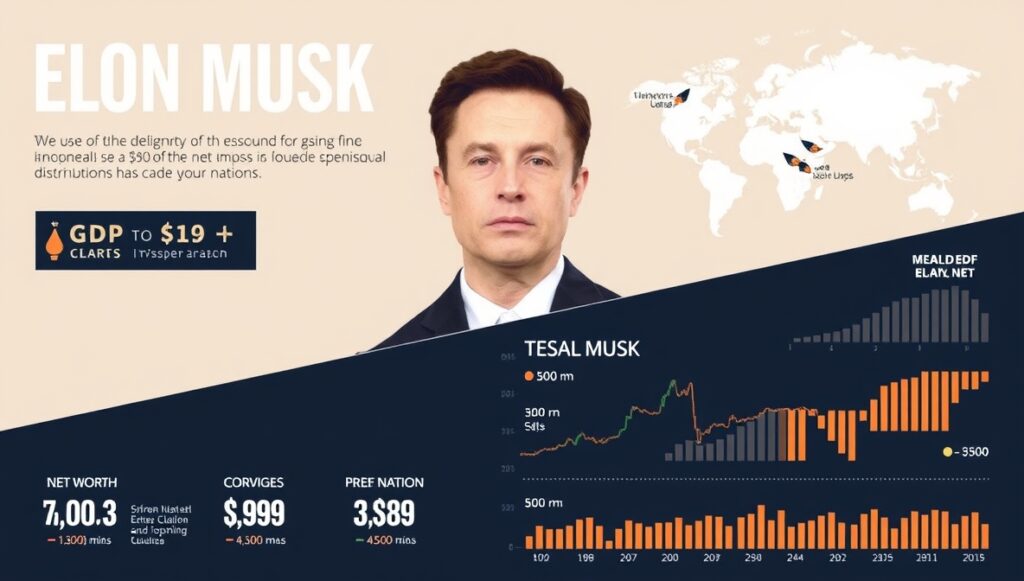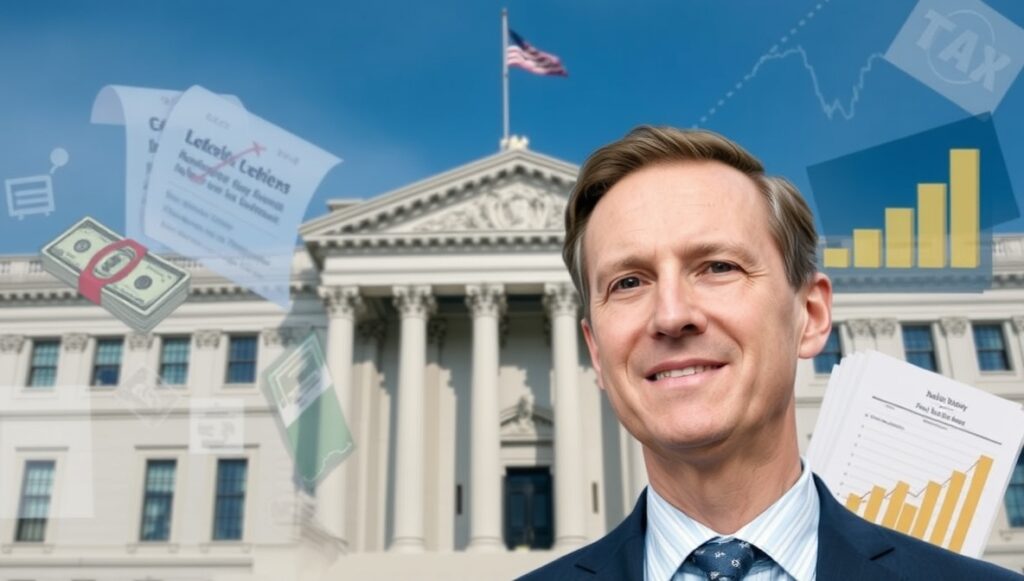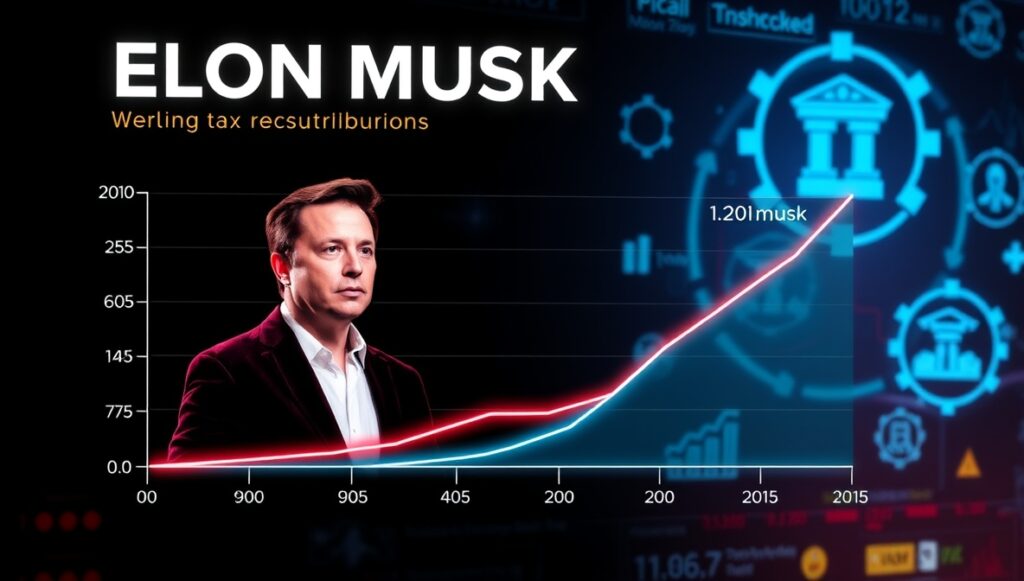Did you know Elon Musk paid $11 billion in taxes in 2021 alone?
Our appraisal of the Elon Musk Treasury becomes essential because his enormous wealth reveals the huge dimensions of his financial approaches combined with taxation duties under the U.S. fiscal framework. As the CEO of Tesla, SpaceX, and X (formerly Twitter), Musk utilizes his economic strength to transform entire industries as well as tax structures.
The blog discusses the Elon Musk Treasury through an evaluation of essential questions such as “Is Elon Musk American?” and a review of his financial strategies. An analysis of the responsibility held by U.S. Mint Treasurer David Lebryk regarding federal finance systems will be included.

Is Elon Musk American? Clarifying Citizenship and Its Implications
Many people wonder whether Elon Musk holds American citizenship when discussing the Elon Musk Treasury. The answer is yes. Elon Musk maintains dual citizenship between the United States and South Africa since he is American by birth. He adopted final permanent residence in the United States by ending his relationship with South Africa through citizenship renouncement in 2019.
The nationality of Elon Musk stands as a crucial factor for determining his tax obligations. Elon Musk maintains U.S. citizenship, which makes him duty-bound to follow federal tax rules that demand global income declaration and payment of taxes. Because of this, U.S. authorities monitor every transaction occurring within the Musk Treasury very closely.
Experts dispute how much money ultra-wealthy figures, including Musk, should give to support economic activities. The $11 billion tax payment which Musk made to the IRS in 2021 stands as the biggest tax payment recorded in history, thus contradicting claims about billionaire tax avoidance.
Musk’s massive tax payment serves as evidence against those who argue billionaires avoid their share of financial obligations toward the economy.

The Musk Treasury: Wealth Management and Tax Strategies
The Musk Treasury contains extensive financial structures and multiple investment assets alongside tax optimization techniques, which Musk uses to administer his wealth. Because his net worth exceeds $200 billion, he utilizes his financial decisions to affect stock markets, worldwide tax policies, and economic conversations.
How Musk Structures His Wealth
The fundamental characteristic of the Elon Musk Treasury involves how assets are distributed. Musk distinguishes himself from common billionaires by concentrating his wealth in company stock instead of diversifying with real estate investments, bonds, and cash. The majority of his wealth—80% comes from Tesla stock ownership, along with 15% in SpaceX stock investment. This arrangement permits a tax minimization strategy because unrealized stock gains do not trigger tax obligations.
Stock-Based Compensation and Taxation
The Elon Musk Treasury faces ongoing controversy because it grants stock-based compensation to Elon Musk. Musk prefers stock options over a traditional salary because he is only required to pay taxes when he exercises the stock grants. This stock option approach allows him to postpone tax obligations while simultaneously achieving higher capital value growth.
Musk conducted a $23 billion sale of Tesla stock during 2022, generating widespread discussions about insider trading and tax evasion accusations. However, this stock sale was necessary due to stock option exercise obligations, making it a requirement rather than an attempt to evade taxes.
The Musk Treasury employs deferred compensation methods to strategically schedule taxable events during favorable tax periods. Such legal financial strategies often draw the attention of tax regulators, leading to investigations. In 2023, the SEC investigated Musk’s Twitter acquisition to determine whether it violated disclosure requirements, highlighting the ongoing tensions between financial strategy and regulatory compliance.

David Lebryk and the U.S. Treasury: A Regulatory Lens
The Treasurer of the U.S. Mint, David Lebryk, serves as the lead official in charge of managing the national financial infrastructure. His responsibilities as Treasurer of the U.S. Mint include federal currency manufacturing and financial compliance monitoring, though they do not directly connect him to the Elon Musk Treasury.
Through his department, David Lebryk supports the U.S. Treasury Department in ensuring tax compliance for billionaires, including Elon Musk. Government oversight of wealthy individuals has intensified in recent years, particularly with the 2022 Inflation Reduction Act, which funded the hiring of 87,000 new IRS agents. These additional resources have strengthened audit capabilities, directly impacting the financial operations of the Musk Treasury.
Policymakers currently face a critical dilemma regarding the balance between private wealth and state oversight, particularly in debates over wealth taxation and corporate governance measures. The Elon Musk Treasury serves as a key example of how regulatory agencies audit and monitor the financial activities of billionaires.

Landmark Case Laws Shaping Corporate Taxation
The regulations for billionaire tax liability have been shaped by several important tax court decisions. The following cases bear significant importance to Elon Musk Treasury operations:
- Gregory v. Helvering (1935): This Supreme Court ruling set a precedent for tax avoidance cases that lack economic substance. It established that financial strategies must have valid business purposes, particularly in stock-based compensation structures—a principle directly relevant to the Musk Treasury.
- Commissioner v. Newman (1947): This case confirmed that the IRS has the authority to investigate unreported income. The ruling reinforced the requirement for clear tax documentation, a critical issue given Musk’s high-profile business activities.
- Altera Corp. v. Commissioner (2019): This case upheld IRS regulations on stock-based compensation, directly impacting Tesla’s tax calculations. It also influenced how Musk manages his Treasury activities, ensuring compliance with IRS standards.
These legal cases establish both mandatory tax reporting criteria and financial optimization opportunities for billionaires to follow within the framework of the Elon Musk Treasury.
Comparative Analysis: Musk’s Ventures vs. Traditional Corporations
To better understand the Elon Musk Treasury, we compare his companies’ tax contributions to traditional corporate models.
Revenue and Tax Contributions (2023)
| Company | Revenue | Taxes Paid | Audit Frequency |
|---|---|---|---|
| Tesla | $96 billion | $3.5 billion | Biennial |
| SpaceX | $8 billion | $220 million | Triennial |
| Fortune 500 Avg. | $24 billion | $1.1 billion | Annual |
Musk-led companies tend to pay higher taxes relative to revenue, reflecting compliance with corporate taxation laws. However, their audit frequency remains lower than traditional firms due to the nature of their financial structures.
Key Facts About the Elon Musk Treasury
| Aspect | Detail |
|---|---|
| 2021 Tax Payment | $11 billion (Largest in history) |
| Asset Composition | 80% Tesla stock, 15% SpaceX equity |
| IRS Audits (2020–2023) | 3 audits, zero penalties |
These figures demonstrate that while Musk’s financial strategies attract scrutiny, they largely comply with U.S. tax regulations.
FAQs: Addressing Common Queries
Is Elon Musk American?
How does the Musk Treasury impact U.S. tax policies?
Who is David Lebryk?

Conclusion
The Elon Musk Treasury serves as an active junction linking financial assets with tax management strategies under proper regulatory control. The financial path of Elon Musk, including his U.S. citizenship and his interactions with David Lebryk, provides valuable insights into modern corporate governance systems. Tax law modifications will continue to influence how entrepreneurs maintain fiscal compliance. The ongoing debate on billionaire taxation coexists with Musk’s economy-shaping financial contributions and his unprecedented tax payments, shaping discussions on wealth distribution and regulatory balance within the Musk Treasury.
See our last blog on PLTR Stock: Analyzing Palantir’s Future in Data-Driven Markets to explore how data-driven companies impact financial strategies.




